FICTION
THE QUEEN OF SPADES AND OTHER STORIES, Alexander Pushkin. 128pp. 0-486-28054-3
THE STORY OF AN AFRICAN FARM, Olive Schreiner. 256pp. 0-486-40165-0
FRANKENSTEIN, Mary Shelley. 176pp. 0-486-28211-2
THE JUNGLE, Upton Sinclair. 320pp. (Available in U.S. only.) 0-486-41923-1
THREE LIVES, Gertrude Stein. 176pp. (Available in U.S. only.) 0-486-28059-4
THE BODY SNATCHER AND OTHER TALES, Robert Louis Stevenson. 80pp. 0-486-41924-X
THE STRANGE CASE OF DR. JEKYLL AND MR. HYDE, Robert Louis Stevenson. 64pp. 0-486-26688-5
TREASURE ISLAND, Robert Louis Stevenson. 160pp. 0-486-27559-0
GULLIVERS TRAVELS, Jonathan Swift. 240pp. 0-486-29273-8
THE KREUTZER SONATA AND OTHER SHORT STORIES, Leo Tolstoy. 144pp. 0-486-27805-0
THE WARDEN, Anthony Trollope. 176pp. 0-486-40076-X
FATHERS AND SONS, Ivan Turgenev. 176pp. 0-486-0073-5
ADVENTURES OF HUCKLEBERRY FINN, Mark Twain. 224pp. 0-486-28061-6
THE ADVENTURES OF TOM SAWYER, Mark Twain. 192pp. 0-486-40077-8
THE MYSTERIOUS STRANGER AND OTHER STORIES, Mark Twain. 128pp. 0-486-27069-6
HUMOROUS STORIES AND SKETCHES, Mark Twain. 80pp. 0-486-29279-7
AROUND THE WORLD IN EIGHTY DAYS, Jules Verne. 160pp. 0-486-41111-7
CANDIDE, Voltaire (Franois-Marie Arouet). 112pp. 0-486-26689-3
GREAT SHORT STORIES BY AMERICAN WOMEN, Candace Ward (ed.). 192pp. 0-486-28776-9
THE COUNTRY OF THE BLIND AND OTHER SCIENCE-FICTION STORIES, H. G. Wells. 160pp. (Not available in Europe or United Kingdom.) 0-486-29569-9
THE ISLAND OF DR. MOREAU, H. G. Wells. 112pp. (Not available in Europe or United Kingdom.) 0-486-29027-1
THE INVISIBLE MAN, H. G. Wells. 112pp. (Not available in Europe or United Kingdom.) 0-486-27071-8
THE TIME MACHINE, H. G. Wells. 80pp. (Not available in Europe or United Kingdom.) 0-486-28472-7
THE WAR OF THE WORLDS, H. G. Wells. 160pp. (Not available in Europe or United Kingdom.) 0-486-29506-0
ETHAN FROME, Edith Wharton. 96pp. 0-486-26690-7
SHORT STORIES, Edith Wharton. 128pp. 0-486-28235-X
THE AGE OF INNOCENCE, Edith Wharton. 288pp. 0-486-29803-5
THE PICTURE OF DORIAN GRAY, Oscar Wilde. 192pp. 0-486-27807-7
JACOBS ROOM, Virginia Woolf. 144pp. (Not available in Europe or United Kingdom.) 0-486-40109-X
MONDAY OR TUESDAY: Eight Stories, Virginia Woolf. 64pp. (Not available in Europe or United Kingdom.) 0-486-29453-6
NONFICTION
POETICS, Aristotle. 64pp. 0-486-29577-X
POLITICS, Aristotle. 368pp. 0-486-41424-8
NICOMACHEAN ETHICS, Aristotle. 256pp. 0-486-40096-4
MEDITATIONS, Marcus Aurelius. 128pp. 0-486-29823-X
THE LAND OF LITTLE RAIN, Mary Austin. 96pp. 0-486-29037-9
THE DEVILS DICTIONARY, Ambrose Bierce. 144pp. 0-486-27542-6
THE ANALECTS, Confucius. 128pp. 0-486-28484-0
CONFESSIONS OF AN ENGLISH OPIUM EATER, Thomas De Quincey. 80pp. 0-486-28742-4
THE SOULS OF BLACK FOLK, W. E. B. Du Bois. 176pp. 0-486-28041-1
NARRATIVE OF THE LIFE OF FREDERICK DOUGLASS, Frederick Douglass. 96pp. 0-486-28499-9
SELF-RELIANCE AND OTHER ESSAYS, Ralph Waldo Emerson. 128pp. 0-486-27790-9
THE LIFE OF OLAUDAH EQUIANO, OR GUSTAVUS VASSA, THE AFRICAN, Olaudah Equiano. 192pp. 0-486-40661-X
THE AUTOBIOGRAPHY OF BENJAMIN FRANKLIN, Benjamin Franklin. 144pp. 0-486-29073-5
TOTEM AND TABOO, Sigmund Freud. 176pp. (Not available in Europe or United Kingdom.) 0-486-40434-X
LOVE: A Book of Quotations, Herb Galewitz (ed.). 64pp. 0-486-40004-2
PRAGMATISM, William James. 128pp. 0-486-28270-8
THE STORY OF MY LIFE, Helen Keller. 80pp. 0-486-29249-5
TAO TE CHING, Lao Tze. 112pp. 0-486-29792-6
GREAT SPEECHES, Abraham Lincoln. 112pp. 0-486-26872-1
THE PRINCE, Niccol Machiavelli. 80pp. 0-486-27274-5
THE SUBJECTION OF WOMEN, John Stuart Mill. 112pp. 0-486-29601-6
SELECTED ESSAYS, Michel de Montaigne. 96pp. 0-486-29109-X
UTOPIA, Sir Thomas More. 96pp. 0-486-29583-4
BEYOND GOOD AND EVIL: Prelude to a Philosophy of the Future, Friedrich Nietzsche. 176pp. 0-486-29868-X
THE BIRTH OF TRAGEDY, Friedrich Nietzsche. 96pp. 0-486-28515-4
COMMON SENSE, Thomas Paine. 64pp. 0-486-29602-4
SYMPOSIUM AND PHAEDRUS, Plato. 96pp. 0-486-27798-4
THE TRIAL AND DEATH OF SOCRATES: Four Dialogues, Plato. 128pp. 0-486-27066-1
A MODEST PROPOSAL AND OTHER SATIRICAL WORKS, Jonathan Swift. 64pp. 0-486-28759-9
CIVIL DISOBEDIENCE AND OTHER ESSAYS, Henry David Thoreau. 96pp. 0-486-27563-9
WALDEN; OR, LIFE IN THE WOODS, Henry David Thoreau. 224pp. 0-486-28495-6
NARRATIVE OF SOJOURNER TRUTH, Sojourner Truth. 80pp. 0-486-29899-X
THE THEORY OF THE LEISURE CLASS, Thorstein Veblen. 256pp. 0-486-28062-4
DE PROFUNDIS, Oscar Wilde. 64pp. 0-486-29308-4
OSCAR WILDES WIT AND WISDOM: A Book of Quotations, Oscar Wilde. 64pp. 0-486-40146-4
UP FROM SLAVERY, Booker T. Washington. 160pp. 0-486-28738-6
A VINDICATION OF THE RIGHTS OF WOMAN, Mary Wollstonecraft. 224pp. 0-486-29036-0
PLAYS
PROMETHEUS BOUND, Aeschylus. 64pp. 0-486-28762-9
THE ORESTEIA TRILOGY: Agamemnon, The Libation-Bearers and The Furies, Aeschylus. 160pp. 0-486-29242-8
LYSISTRATA, Aristophanes. 64pp. 0-486-28225-2
WHAT EVERY WOMAN KNOWS, James Barrie. 80pp. (Not available in Europe or United Kingdom.) 0-486-29578-8
THE CHERRY ORCHARD, Anton Chekhov. 64pp. 0-486-26682-6
THE SEA GULL, Anton Chekhov. 64pp. 0-486-40656-3
THE THREE SISTERS, Anton Chekhov. 64pp. 0-486-27544-2
UNCLE VANYA, Anton Chekhov. 64pp. 0-486-40159-6
THE WAY OF THE WORLD, William Congreve. 80pp. 0-486-27787-9
BACCHAE, Euripides. 64pp. 0-486-29580-X
MEDEA, Euripides. 64pp. 0-486-27548-5
I
SUBJECT OF THE FIRST BOOK
Man is born free; and everywhere he is in chains. One thinks himself the master of others, and still remains a greater slave than they. How did this change come about? I do not know. What can make it legitimate? That question I think I can answer.
If I took into account only force, and the effects derived from it, I should say: As long as a people is compelled to obey, and obeys, it does well; as soon as it can shake off the yoke, and shakes it off, it does still better; for, regaining its liberty by the same right as took it away, either it is justified in resuming it, or there was no justification for those who took it away. But the social order is a sacred right which is the basis of all other rights. Nevertheless, this right does not come from nature, and must therefore be founded on conventions. Before coming to that, I have to prove what I have just asserted.
II
THE FIRST SOCIETIES
The most ancient of all societies, and the only one that is natural, is the family: and even so the children remain attached to the father only so long as they need him for their preservation. As soon as this need ceases, the natural bond is dissolved. The children, released from the obedience they owed to the father, and the father, released from the care he owed his children, return equally to independence. If they remain united, they continue so no longer naturally, but voluntarily; and the family itself is then maintained only by convention.
This common liberty results from the nature of man. His first law is to provide for his own preservation, his first cares are those which he owes to himself; and, as soon as he reaches years of discretion, he is the sole judge of the proper means of preserving himself, and consequently becomes his own master. The family then may be called the first model of political societies: the ruler corresponds to the father, and the people to the children; and all, being born free and equal, alienate their liberty only for their own advantage. The whole difference is that, in the family, the love of the father for his children repays him for the care he takes of them, while, in the State, the pleasure of commanding takes the place of the love which the chief cannot have for the peoples under him.

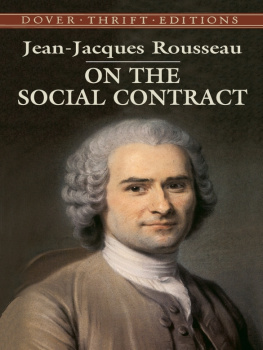
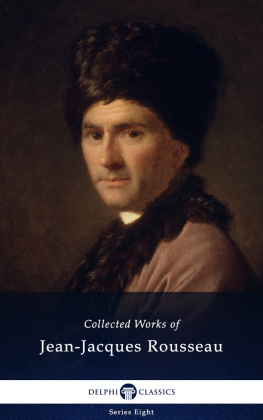
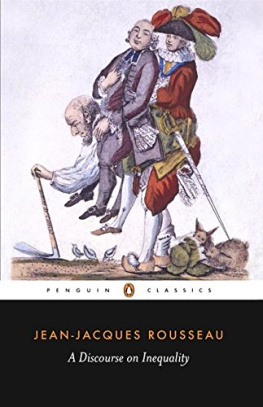
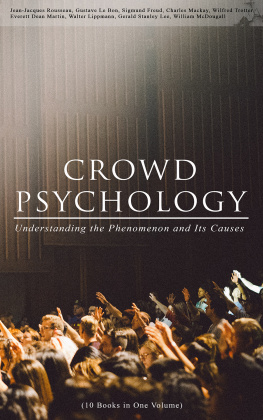
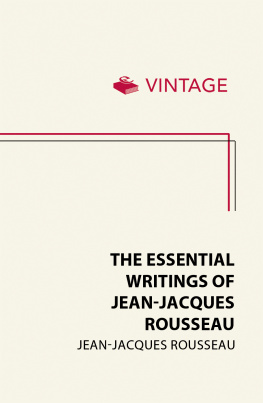
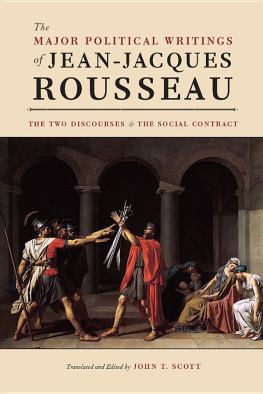


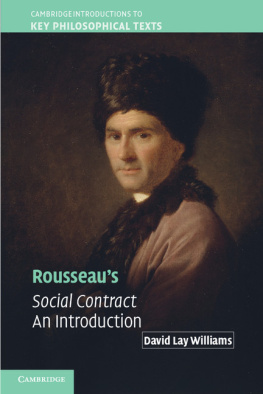
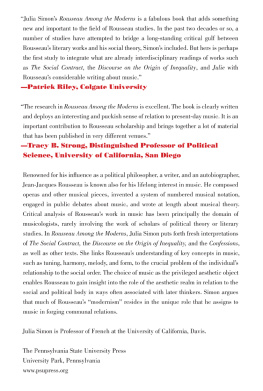
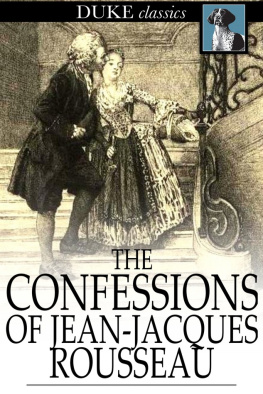
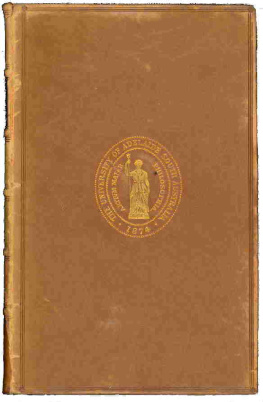
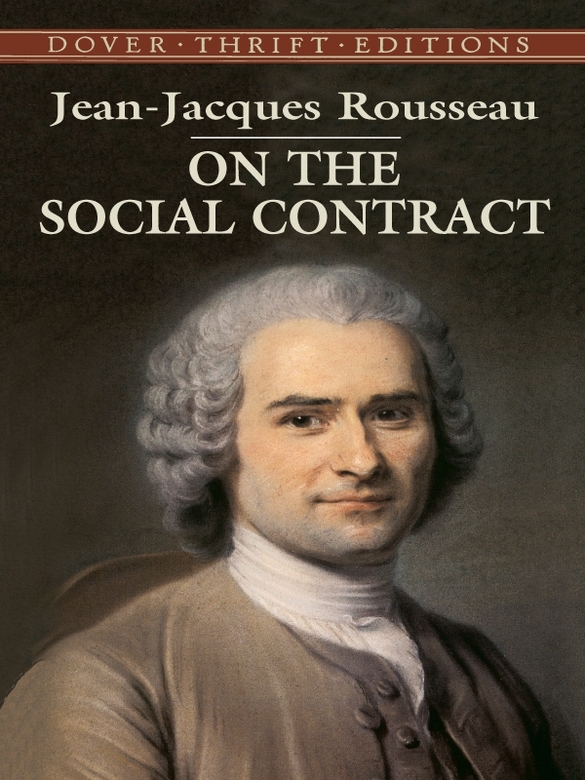
 THRIFT
THRIFT